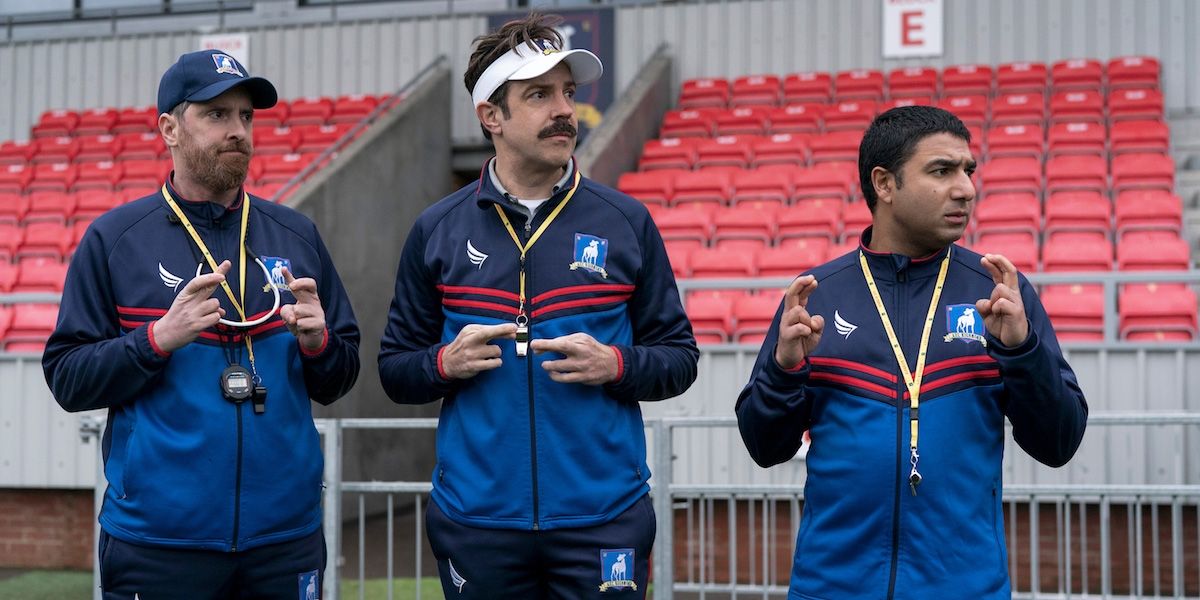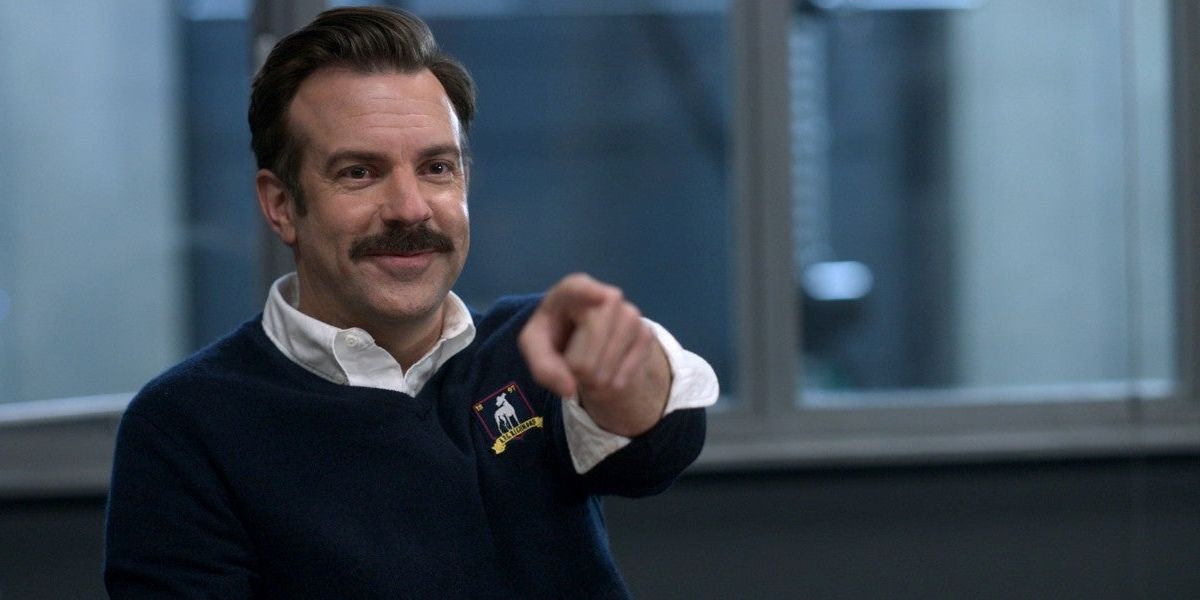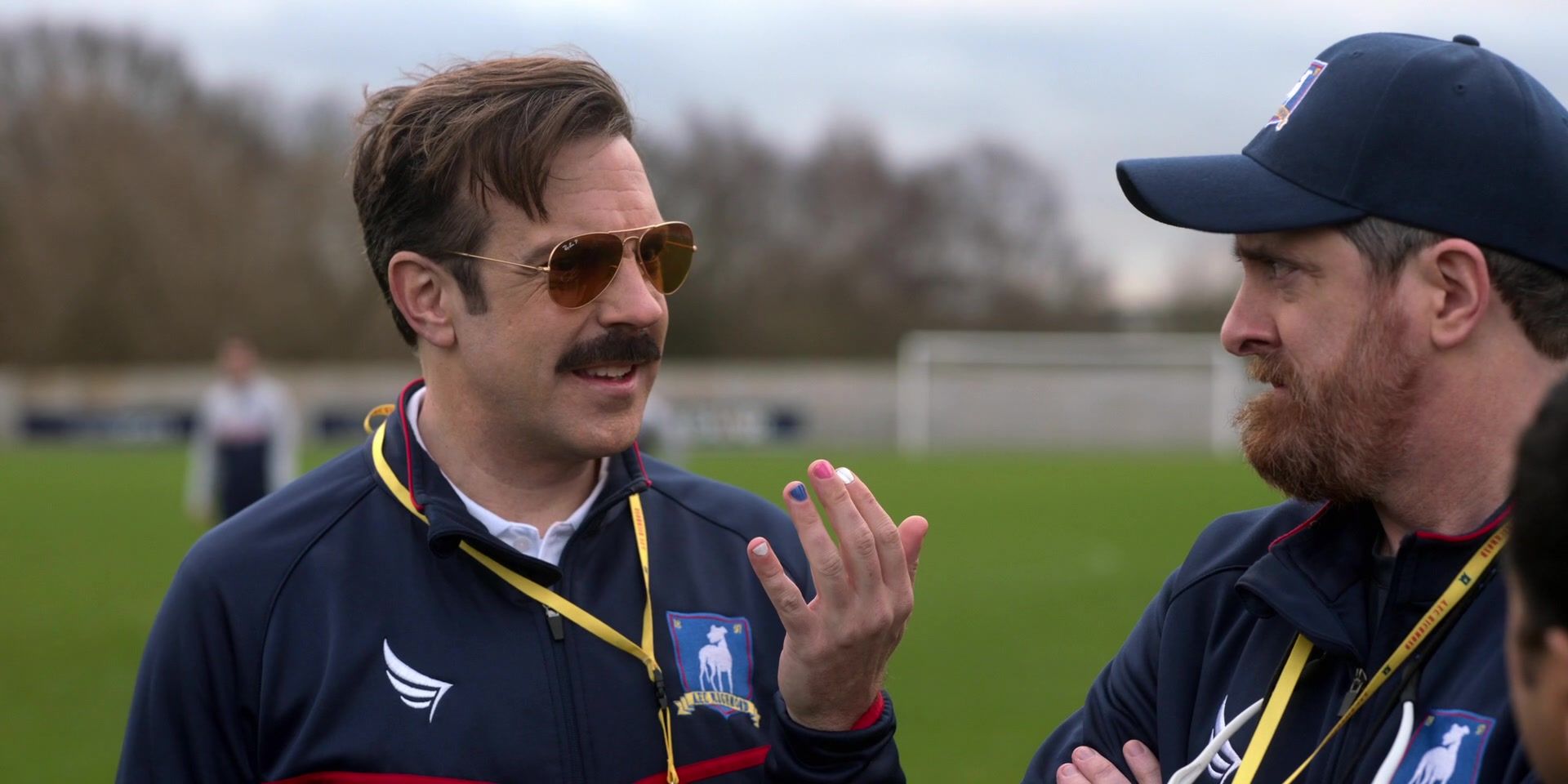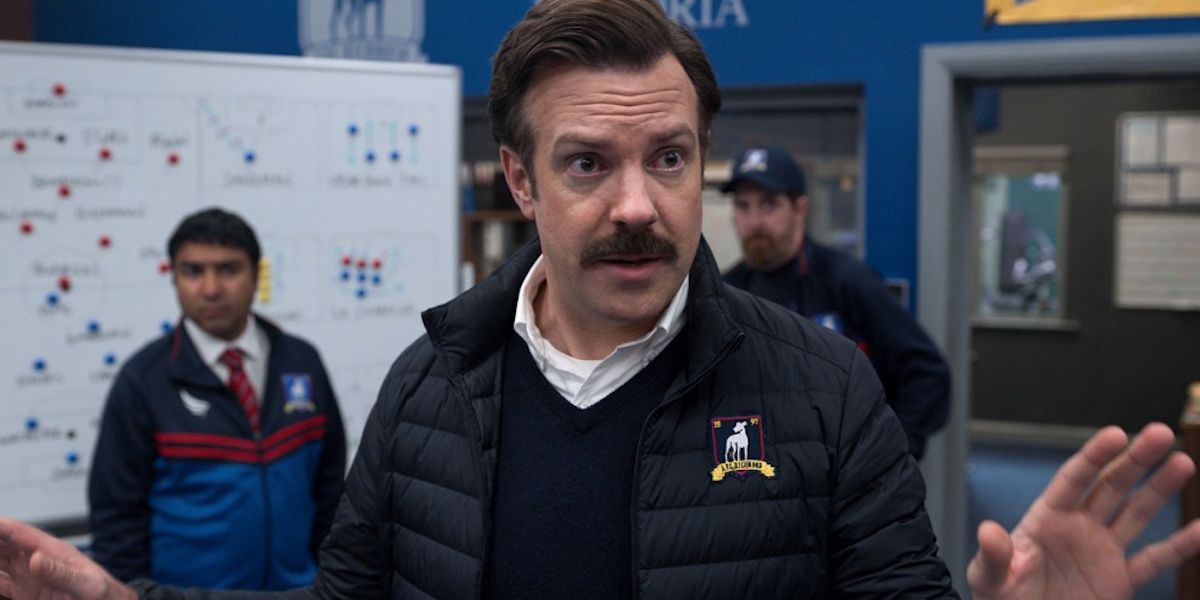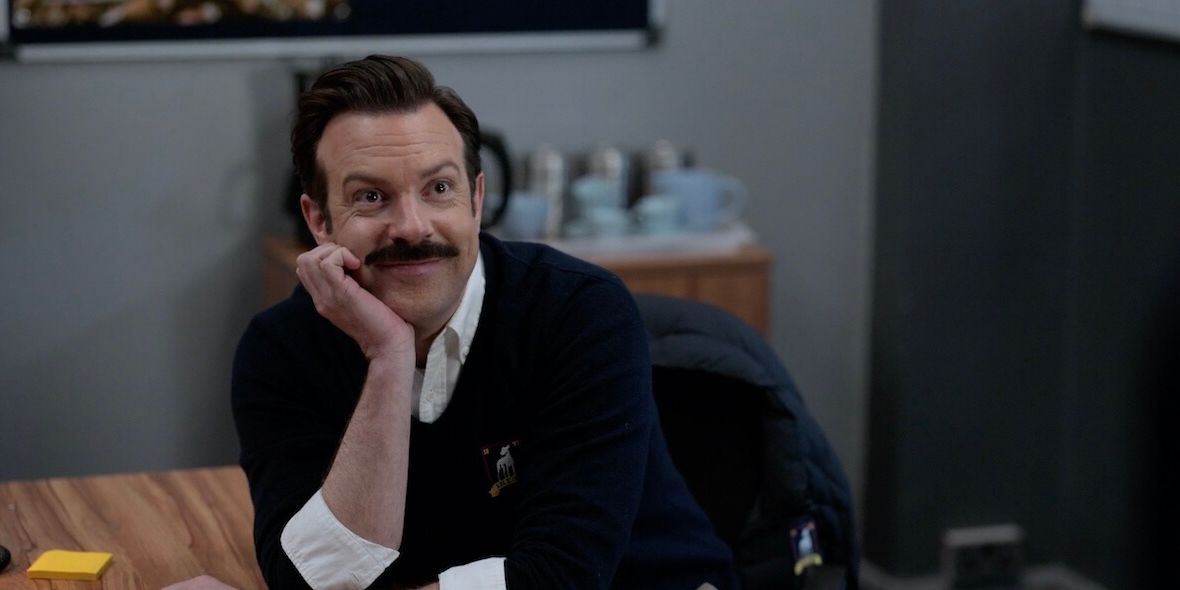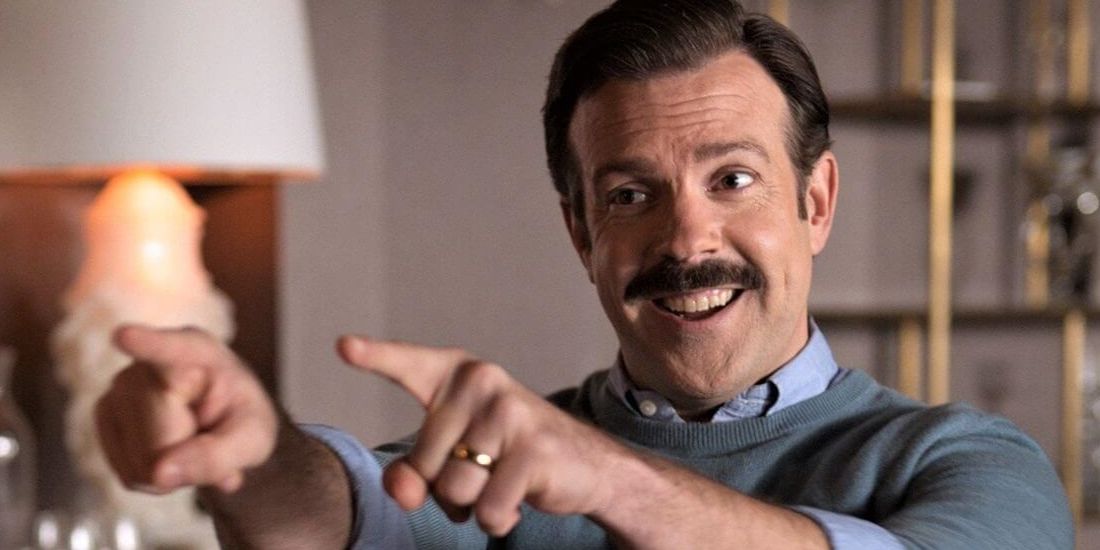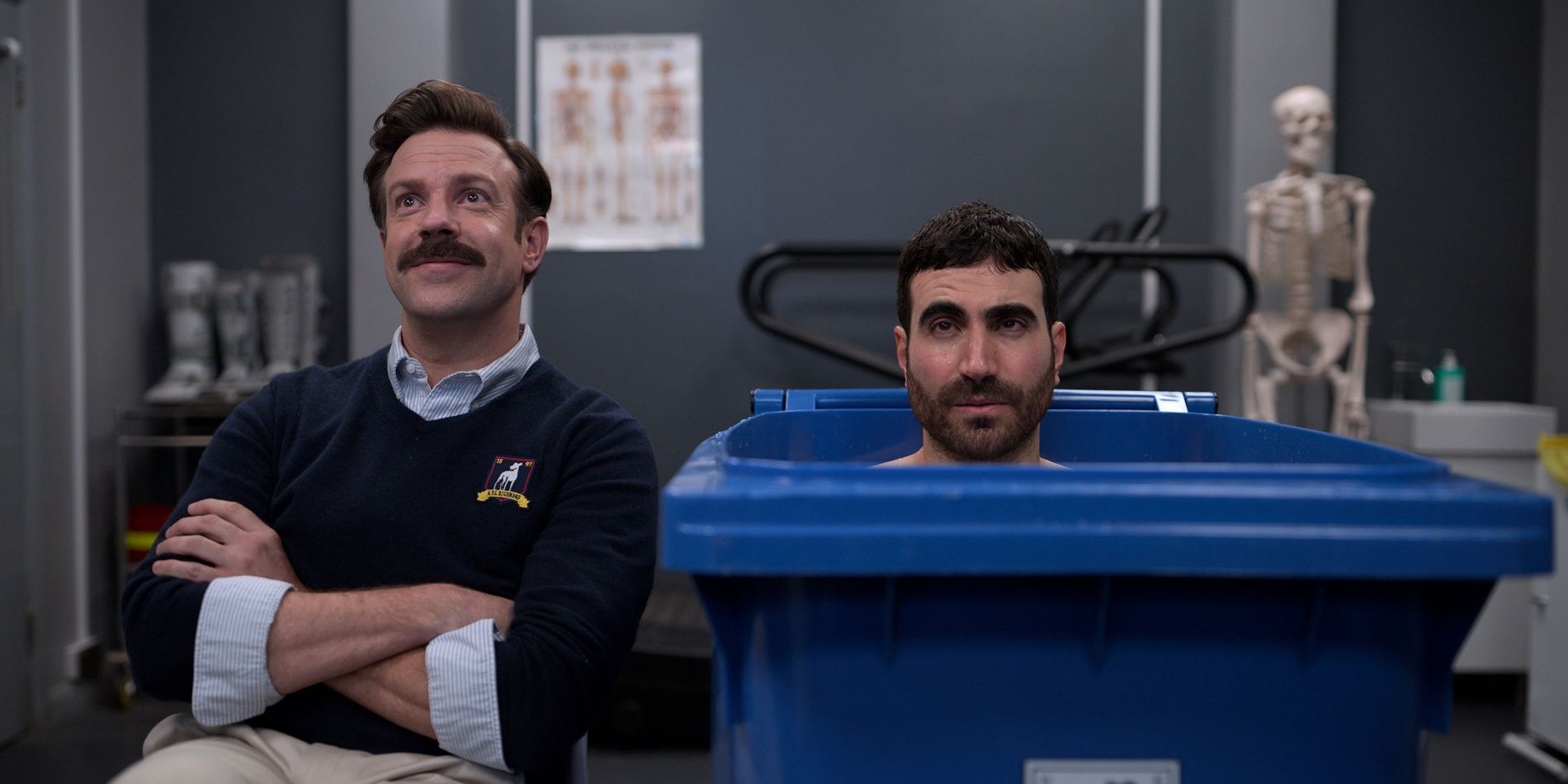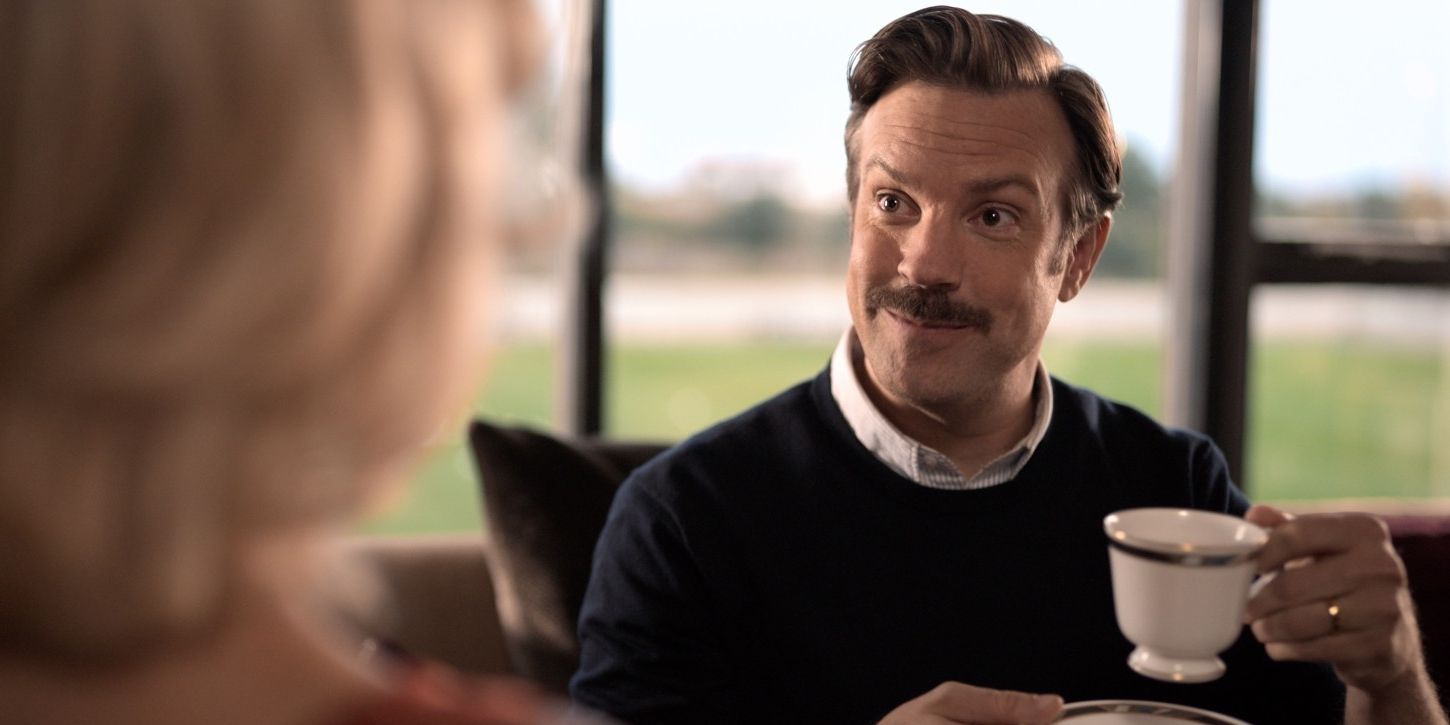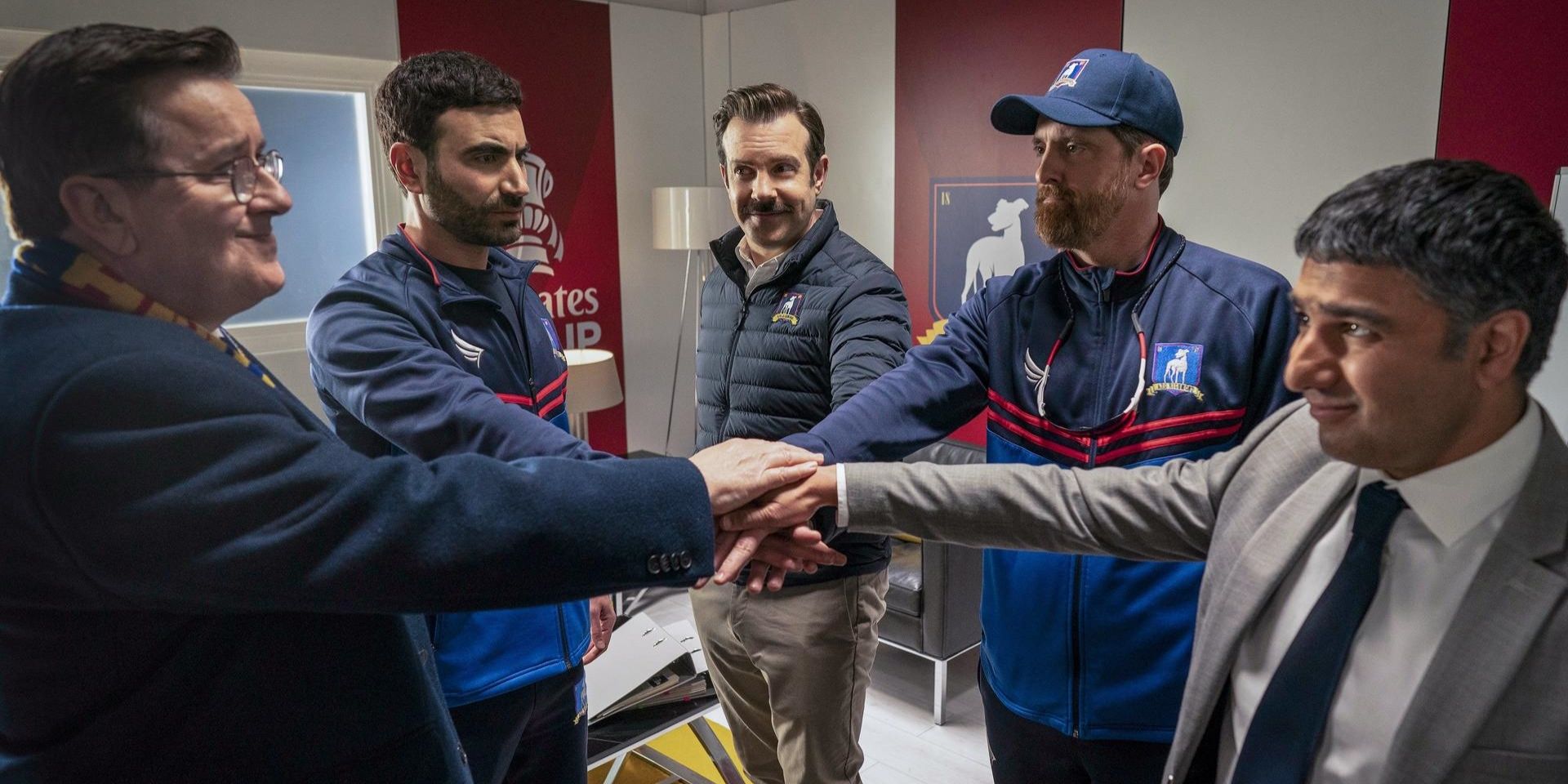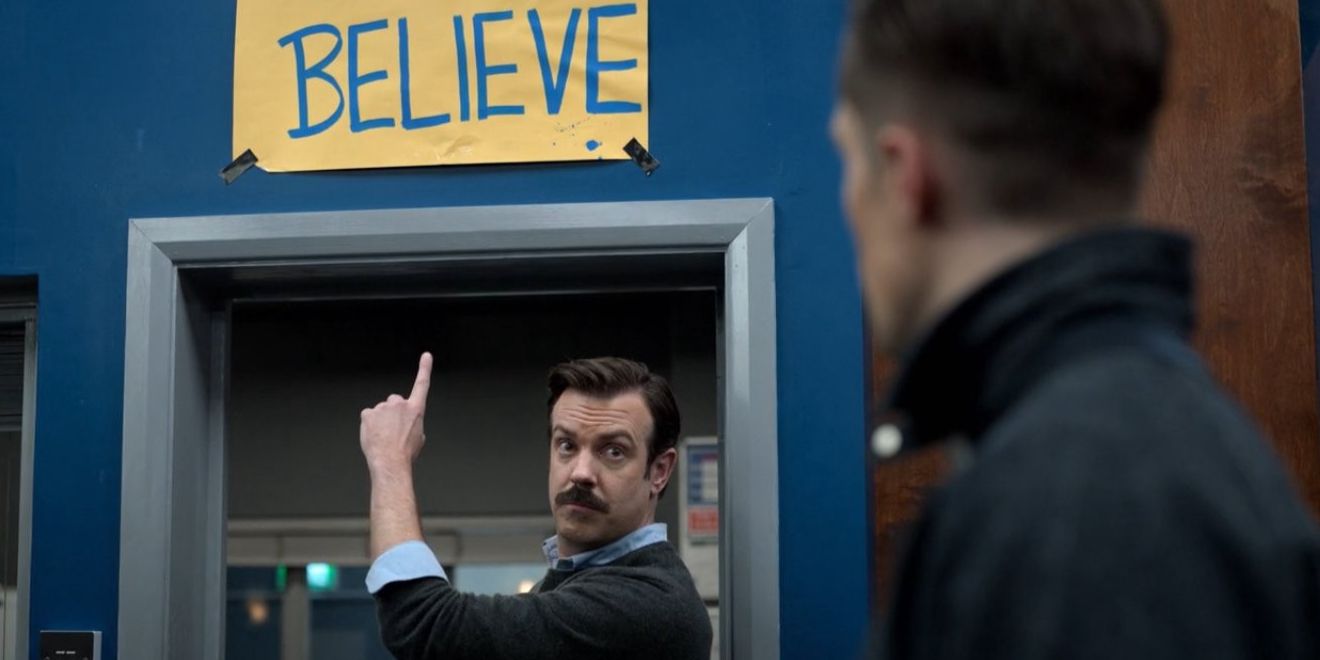Ted Lasso is both a highly successful series on Apple TV and the name of the mustachioed character played by Jason Sudeikis. Lasso is a football coach from Kansas turned soccer coach in England, though his coaching style would undoubtedly be peculiar in either location. He’s a ubiquitously positive person who values team building and self-improvement over wins and losses. The fans of AFC Richmond are perplexed by his eccentricities, and nothing that’s ever come out of his mouth has ever placated them.
Ted Lasso is known for what can only be described as Ted Lasso-isms. He has a unique turn of phrase that might appear nonsensical, but a quick edit for whimsy and metaphor, and you’re left with something quite profound. Ted’s particular brand of wisdom is both funny and wholesome; dig a little deeper, and you’ll find that his quotes are also words to live by.
Keep Calm And Carry On
From Season 2, Episode 1, Goodbye Earl: “There’s two buttons I never like to hit, all right? And that’s ‘panic’ and ‘snooze.'” Ted has proven that no number of losses (or ties) would induce him to panic. He measures success by whether his players are achieving their potential and playing cohesively as a team.
He doesn’t believe in using stress as a motivator or negative reinforcement. If the effort is there, there’s no reason to panic. Viewers can adapt by drawing satisfaction not from success but consistent performance. As for that snooze button, Ted believes in preparation.
Success Is 99% Perspiration And 1% Inspiration
From Season 1, Episode 1, Pilot: “I do love a locker room. Smells like potential.” What Ted Lasso calls ‘potential,’ someone else may call ‘sweat.’ Neither is wrong; in fact, potential and sweat are just two words for the same thing: preparation.
In not hitting the snooze button, Ted gets straight to work. Practice makes men stinky, but it also makes perfect. When the locker room boasts the fug of industry, Ted knows his team has been training. Effort and exertion are paid for in sweat, without which, there is no potential.
A Burden Shared Is a Burden Halved
From Season 1, Episode 10, The Hope That Kills You: “I want you to be grateful that you’re going through this sad moment with all these other folks. Because I promise you, there is something worse out there than being sad, and that is being alone and being said. Ain’t nobody in this room alone.”
Ted Lasso believes in shared joy. It’s how he unites his team and motivates them to do their best. This quote makes it clear that he also believes in shared grief. When the grief is carried together, it weighs a little less on everyone. People, especially men, can be reluctant to share their sorrow with others, but humans are social creatures, and even in grief they rejoice in connection. To say nothing of perhaps the most important single word in the above quote, "grateful." Gratitude heals. Even in our darkest moments, there is something to be grateful for, and remembering that be a balm on one’s heart.
There Are No Bad Ideas
From Season 2, Episode 1, Goodbye Earl: “I shouldn’t bring an umbrella to a brainstorm.” Nate has just proposed a solution that’s just a tad on the aggressive side for Ted’s taste, but after shooting it down, he follows up with the above quote.
Viewers have long since noticed that Ted is a man who believes in sharing, and he sees value in everyone’s contributions. In fact, his very first act as Coach was to institute a suggestion box. He actively solicits feedback, and just as significantly, he acts on it. Perhaps Ted himself can explain it best: “I want you to know I value each of your opinions, even when you’re wrong.”
Do Not Dwell In The Past
From Season 1, Episode 2, Biscuits: “You know what the happiest animal on Earth is? It’s a goldfish. You know why? It’s got a 10-second memory.”
When Ted tells his players to be goldfish, he’s encouraging them not to dwell on their mistakes. Failure can be a debilitating fixation, and while Ted acknowledges there may be a time and a place for sadness or anger or frustration, they should be limited. There is value in learning from mistakes, but that can only be done by moving forward.
Be Easy On Yourself
From Season 1, Episode 9, All Apologies: “You beating yourself up is like Woody Allen playing the clarinet. I don’t want to hear it.”
This is almost a revolutionary statement coming from a coach since the belief in punishment-as-motivation is particularly prevalent in sports. However, no matter the venue, the method simply doesn’t work. Self-criticism does not equal self-improvement. Empathy is a better motivator than cruelty. Perseverance should be reinforced with praise; allowing for failure also allows for grit and determination.
Life Goes On
From Season 1, Episode 2, Biscuits: “I come bearing sweet treats to numb the sting of defeat.”
It might be tempting to dismiss this as a simple ‘eat your feelings’ throwaway, but fans will recall that Ted brings sweet treats every day. In his way, he’s reframing defeat in the most optimistic way he can: with perspective. Ted brings his boss shortbread every morning, win, lose, or no game at all. He’s emphasizing the need to remember that failure is a part of life, that life goes on, and that win or lose, there will be dessert.
You Get What You Get And You Don’t Get Upset
From Season 2, Episode 6, The Signal: “Boy I love meeting people’s moms. It’s like reading an instruction manual as to why they’re nuts.”
It’s important to remember that Ted means this affectionately. Flaws can be inherited from parents but so can talents and dispositions. And whatever nature misses, nurture makes up for. However, mothers aren’t the only nurturers. Nurturing is simply the process of caring for and encouraging someone’s development. Ted’s coaching definitely defaults to nurturing, and if the opportunity presents itself, anyone can choose to be a positive influence in someone else's life.
Appreciate What You Have While You Have It
From Season 2, Episode 1, Goodbye Earl: “It’s funny to think about the things in your life that can make you cry just knowing that they existed can then become the same thing that makes you cry knowing that they’re now gone.”
Even Ted, all sunshine and smiles, knows that life is ephemeral. Nothing lasts forever, not a game or a season, not a win or a loss. Time and memory do funny things, and nostalgia can be surprising. Sometimes people get so bogged down in the details they don’t know what they have until it’s gone. This is a powerful reminder to appreciate what you have before it’s too late.
Believe In Yourself
From Season 1, Episode 1, Pilot, on whether he believes in ghosts: “I do. But more importantly, I think they need to believe in themselves. You know?”
Fans will recognize belief as a major theme throughout both seasons of Ted Lasso so far. The man believes in belief as a foundational tool for creating resilience, motivating performance, and igniting the spirit. Ted hopes these ghosts, like everyone he encounters, believe in themselves, but if they were a team of ghosts, he’d also hope they believed in each other.

